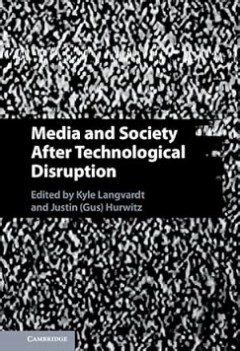Filter by

Population and the new biology: proceedings of the tenth annual symposium of …
edited by Bernard Benjamin, Peter R. Cox, John Peel.
- Edition
- -
- ISBN/ISSN
- 0120883406
- Collation
- x, 187 p. : ill. ; 24 cm.
- Series Title
- -
- Call Number
- -

The environmental rule of law for oceans: designing legal solutions
Our oceans need a strong and effective environmental rule of law to protect them against increased pressures and demands, including climate change, pollution, fisheries, shipping and more. The environmental rule of law for oceans requires the existence of a set of rules and policies at multiple governance levels that appropriately regulate human activities at sea and ensure that pressures on th…
- Edition
- -
- ISBN/ISSN
- 9781009253741
- Collation
- xxxiii, 380 pages; illustration
- Series Title
- -
- Call Number
- 341.4 POZ t

Schooling the nation: education and everyday politics in Egypt
Telling the story of the Egyptian uprising through the lens of education, Hania Sobhy explores the everyday realities of citizens in the years before and after the so-called 'Arab Spring'. With vivid narratives from students and staff from Egyptian schools, Sobhy offers novel insights on the years that led to and followed the unrest of 2011. Drawing a holistic portrait of education in Egypt, sh…
- Edition
- -
- ISBN/ISSN
- 9781108956031
- Collation
- xii, 270 pages; illustration
- Series Title
- -
- Call Number
- 370.962 RAM s

The individual in the economic and monetary union: a study of legal accountab…
The European Union's response to the financial crisis was designed in a way that prevented EU citizens from holding decision-makers accountable. This book reimagines legal accountability by focusing on the citizen, who should be at the centre of the common interest in the EU, with solidarity and equality as guiding principles.
- Edition
- -
- ISBN/ISSN
- 9781009207942
- Collation
- xxv, 220 pages
- Series Title
- -
- Call Number
- 346.402 BOB t

Innovation-development detours for latecomers: managing global-local interfac…
Drawing on extensive empirical studies of firms and industries around the world, this book presents a rich menu of development pathways, including a new role by a Schumpeterian state to initiate detours and leapfrogging in not only manufacturing but also resource or IT- service sectors
- Edition
- -
- ISBN/ISSN
- 9781009456234
- Collation
- xix, 284 pages; illustration
- Series Title
- -
- Call Number
- 338.9009172 LEE i

International courts versus non-compliance mechanisms: comparative advantages…
The effective implementation of treaties is essential. This book examines the advantages of non-compliance mechanisms (NCMs) versus that of international courts and tribunals to support treaty fulfilment. It brings together globally-recognised names in international law, human rights law, environmental and climate change law, and trade law.
- Edition
- -
- ISBN/ISSN
- 9781009373913
- Collation
- xx, 508 pages; illustration
- Series Title
- -
- Call Number
- 341.5 VOI i

Out of place: fieldwork and positionality in law and society
This volume is a call to embrace the power of positionality, telling a new history of law and society through the experiences of successful scholars from populations that academia has historically marginalized. Experts record their positionalities across their research and document what they learned about the law in the process.
- Edition
- -
- ISBN/ISSN
- 9781009338219
- Collation
- xv, 224 pages; illustration
- Series Title
- -
- Call Number
- 340.115 CHU o

Media and society after technological disruption
This interdisciplinary collection studies the Internet's effects on traditional media. Part 1 deals with the breakdown of trust in the media; Part 2 outlines the changing law of defamation and privacy; Part 3 analyzes the challenge of online content moderation; and Part 4 considers the financial challenges facing journalistic enterprises
- Edition
- -
- ISBN/ISSN
- 9781009174411
- Collation
- xiii, 293 pages
- Series Title
- -
- Call Number
- 302.23 LAN m

Gods of the sea: whales and coastal communities in northeast Japan, c.1600-2019
Challenging common portrayals of Japan as a centuries-old whaling nation, Fynn Holm shows that many coastal communities in early modern Northeast Japan believed whales to be the incarnation of the god of the sea that brought fish to the shore, leading to violent anti-whaling protests that shocked the country
- Edition
- -
- ISBN/ISSN
- 9781009305532
- Collation
- ix, 224 pages; illustration
- Series Title
- Cambridge Oceanic Histories
- Call Number
- 639.2 HOL g

Religious dissimulation and early modern drama: the limits of toleration
Kilian Schindler examines how playwrights such as William Shakespeare, Ben Jonson, and Christopher Marlowe represented religious dissimulation on stage and argues that debates about the legitimacy of dissembling one's faith were closely bound up with early modern conceptions of theatricality. Considering both Catholic and Protestant perspectives on religious dissimulation in the absence of full…
- Edition
- -
- ISBN/ISSN
- 9781009226295
- Collation
- xi, 274 pages
- Series Title
- -
- Call Number
- 822.309382 SCH r
 Computer Science, Information & General Works
Computer Science, Information & General Works  Philosophy & Psychology
Philosophy & Psychology  Religion
Religion  Social Sciences
Social Sciences  Language
Language  Pure Science
Pure Science  Applied Sciences
Applied Sciences  Art & Recreation
Art & Recreation  Literature
Literature  History & Geography
History & Geography